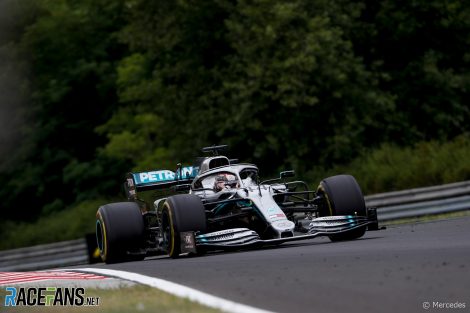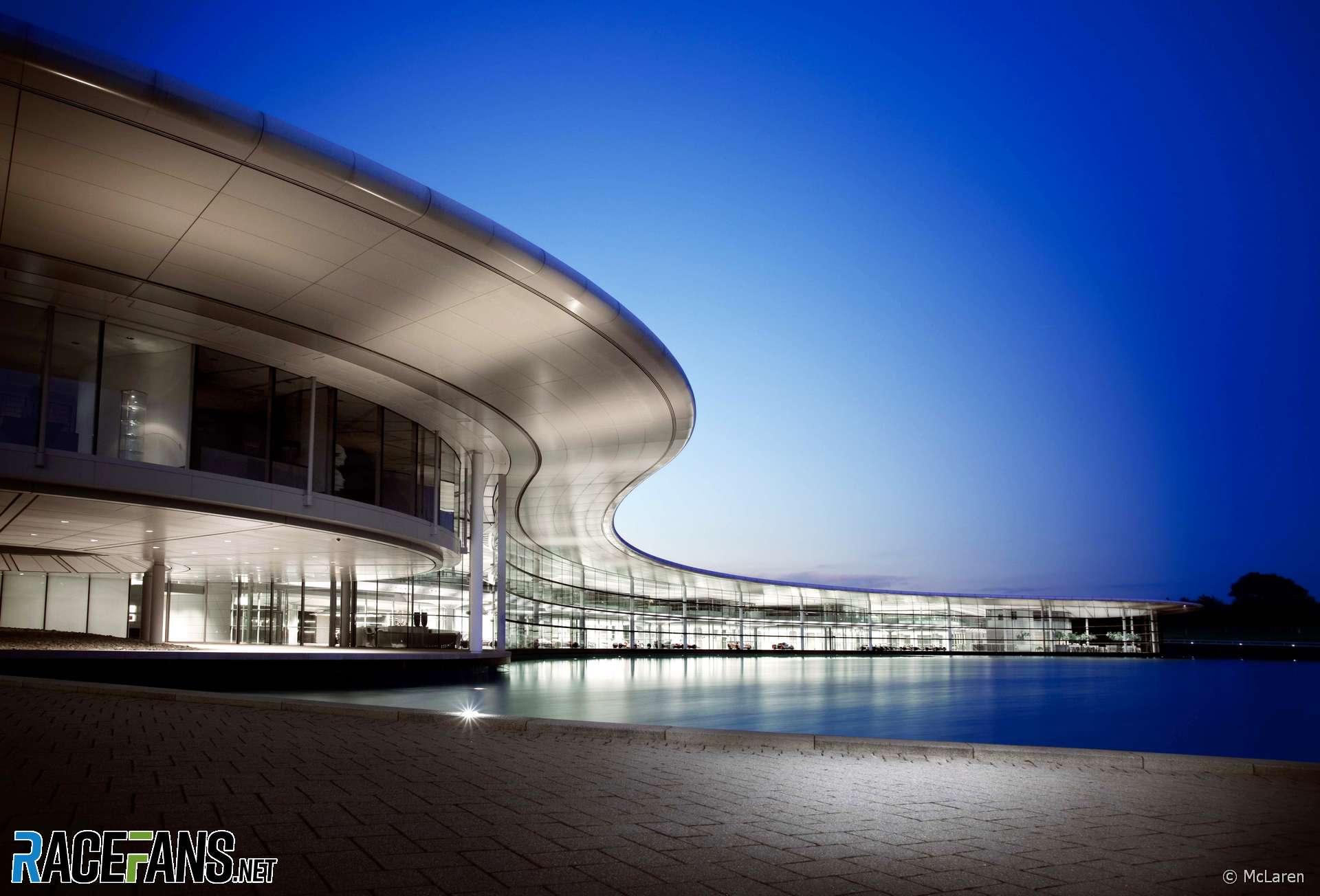In the days of open testing, Formula 1 was effectively a 24/7/365 activity. At least one test team could usually be found operating at some European circuit somewhere in the daytime.
Nights were spent fettling and updating test cars ready for the next day. The only restrictions were that no testing could take place during a grand prix weekend, but shakedowns were permitted, which defeated that objective.However, in 2000 Eddie Jordan began agitating for a summer break, banging on about how the staff of his eponymous team had children whom they seldom saw, even during school holidays. The sport, he argued in his characteristically colourful way, should have at least three weeks off every August, including two full weekends, to enable race personnel to enjoy a well-deserved summer break.
Most noble and generous of Jordan thought most in the paddock, until, that is, a rival team boss pointed out that Eddie J, then riding the crest of a financial wave, had recently ordered a new yacht – his first – and planned to sail the Mediterranean in August.
Whatever, a summer break for travelling F1 staff eventually became de rigueur. The number of ‘off’ weekends later grew from two to three, despite a calendar more crowded than any Jordan ever contested, although the FIA stipulates a minimum of two ‘off’ weekends. Article 21.8 of the 2019 Sporting Regulations states:
Advert | Become a RaceFans supporter and
“All competitors must observe a shutdown period of 14 consecutive days during the time that two consecutive events are separated by at least 24 days during the months of July and/or August.

However, note the word ‘competitors’; in this case the teams. As a rule of thumb any personnel directly involved in the design, build or operation of a Formula 1 car are deemed to be ‘competitors’, and fall under the jurisdiction of FIA regulations. Support staff such as finance, human relations, factory maintenance and operations and IT do not and are therefore not obliged to take a statutory F1 break.
With the break period providing a perfect window for the maintenance and upgrading of facilities and systems, such staff are very much in evidence during the break. But race staff, design engineers and such are obliged to stay away for at least two weeks.
Equally, engine suppliers – and technical partners such tyre and fuel/lubricant companies – do not (currently) fall under FIA jurisdiction. Thus their personnel may work through the break, although many of their trackside staff partake of the convenient break.
Advert | Become a RaceFans supporter and
Hence Mercedes Motorsport CEO Toto Wolff’s reference yesterday to “our team members in Brixworth [working] straight through the F1 summer break to improve the performance and reliability of our Power Unit; in Brackley, we used the relatively quiet days to do some work on our factory.” All legal, of course.

The FIA is empowered to monitor the situation by demanding access to all the communications trails of a ‘competitor’ but, according to a number of team personnel, the situation has not arisen in the almost two decades since the regulations were introduced.
The reason is simple: apart from the fact that the whistle-blower policy applies, in these days of 20-plus grands prix F1 personnel relish the opportunity of taking a break from the pressure cooker environment they operate in.
Plus some find themselves under domestic pressure during the break: “My wife won’t let me touch my work mobile phone or laptop while I’m on holiday…” one engineer remarked when asked whether he’d adhered to the regulations.
[dietersinbox]
Go ad-free for just £1 per month
>> Find out more and sign up
Dieter Rencken’s RacingLines column will return next week.





Phylyp (@phylyp)
28th August 2019, 8:36
Thanks for this article, Keith. A couple of days ago a tweet that you included in the round-up resulted in a few comments about the details of how this works, so it’s nice to see this article laying out the details.
Good God, leave it to F1 to create a complex and arcane rule for even something like this. Would it kill them to just say “The FIA will specify a shutdown period of 13 or 14 days in July/August” and let everyone line up to the same days?
socksolid (@socksolid)
28th August 2019, 9:05
I think that is a valid ruling from fia. By making it a rule instead of yearly decision it removes possible political games from that ruling while allowing teams to fulfill that rule the way they want.
ColdFly (@)
28th August 2019, 9:09
I think the rules allow for way too many loopholes, @phylyp.
Haas could start the rest period in the USA and start again in the UK (gaining a couple of hours).
And what if Monaco swaps places with Spa? The consecutive events separation will neither be ‘at least 24 days’, nor ‘only 17 days’.
Maybe we should ask Brawn to stop his work on the 2021 rules and clean up these rules first.
Phylyp (@phylyp)
28th August 2019, 15:26
@socksolid – fair point.
@coldfly – Our Lord and Saviour Ross Brawn. If he listened to us fans, he’d also be fixing the soft serve machine at McDonalds :)
Alianora La Canta (@alianora-la-canta)
28th August 2019, 15:36
@phylyp No, because it was anticipated that teams might need different days off (back then, sponsor events and pre-scheduled testing were the two big items in that category) and deciding the exemption route might be more hassle than simply telling teams to tell them their chosen dates and stick to them.
As I understand it, everyone has to use the FIA’s timezones (i.e. Paris/France time), so no possibility of hour-nicking. Though it might be possible to specify times to start the 24-hour blocks (days), so that you don’t get the silly situation of Haas personnel queuing outside an American centre at 3:55 pm waiting for permission to enter at 4 pm their time (to correspond with midnight Paris time).
As long as there is at least one pair of races with a three-week gap in July or August, the system works. If not… …the FIA will probably tell Liberty to go away and come back with a better calendar. And if that doesn’t work, to tell the teams their summer shutdown is now happening in June/September and prepar for fireworks.
Phylyp (@phylyp)
28th August 2019, 15:43
@alianora-la-canta – thank you, those are very good points.
I’d never thought of it, but your statement suddenly made me wonder – somewhere down the line, would Liberty decide to put in more European races in the summer given its typically a vacation period in Europe, to try and maximize attendees.
Alianora La Canta (@alianora-la-canta)
13th September 2019, 15:06
@phylyp Sorry I’ve taken so long to reply. I think Liberty would then aim to have the early part of July off (with the last bit of June if necessary) to allow the break to continue while giving itself the entire time most European countries are on holiday together, to put in races.
Phylyp (@phylyp)
15th September 2019, 12:39
@alianora-la-canta – good point, thank you.
GeeMac (@geemac)
28th August 2019, 9:00
This is the thing that makes the summer break largely self-policing in my book. It’s easy for F1 fans to forget that the staff of F1 teams have families of their own and they may want to see them occasionally. At the end of the day F1 is their job, a very cool job most of us would love, but a job nonetheless.
Daniel
28th August 2019, 10:35
In future when they bring in budget caps and staff restrictions I would like to see them extend this to limiting hours for staff in order to make sure that they are not being overworked in order to compensate for reduced team personnel.
Joseph (@bigjoe)
28th August 2019, 11:23
@geemac
The people in F1 are every bit as competitive as the drivers. The mechanics are not just ordinary people good with spanners. They would drop their kids and families in a heart beat to gain an advantage.
Nulla Pax (@nullapax)
28th August 2019, 15:05
@bigjoe having worked for “Driven” people I have to agree with you.
As horrific as it sounds there are people in this world who consider success to be more important than family.
These are the type of people who achieve great things – I wont pretend that they don’t – but I am eternally grateful that I am not one of them.
jrw
28th August 2019, 11:54
There is a ton of stuff the engineers can do during the summer break which is not directly related, but indirectly, related to their work. They can study theory and the tools of the trade, find ways to improve the workflow, etc. There is absolutely no reason for them to slack off just because the FIA says so, and being the competitors that they are, I suspect most of them don’t.